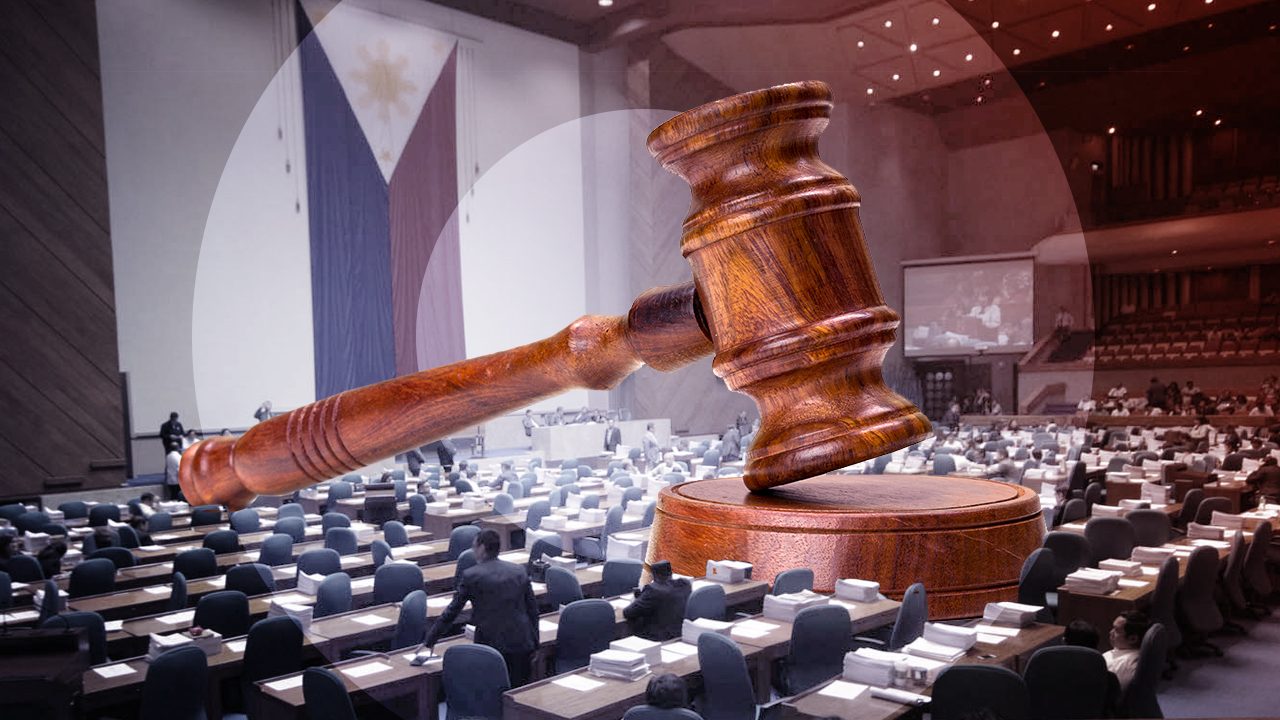SUMMARY
This is AI generated summarization, which may have errors. For context, always refer to the full article.

The speakership is the most coveted post in the House of Representatives.
As administrative head of the lower chamber, the Speaker is tasked to oversee the day-to-day operations of the House.
The Speaker makes sure that lawmakers file their bills, participate in committee hearings, and show up in caucuses with the leadership. The top House leader is also the signatory in all measures that may be issued by the chamber. (READ: Beyond legislation: Powers, roles of Philippine lawmakers)
Beyond the menial tasks, the Speaker is ultimately the chamber’s political leader. He is usually a member of the ruling party and sets the legislative agenda of the House. No bill would ever be brought to the plenary for final reading without the Speaker’s approval.
But over the years, the position of Speaker has become notorious in Philippine politics. (READ: In House power play, Speaker Cayetano’s Palace dreams are at stake)
Congress is meant to serve as a check for possible abuses by the executive branch. Yet the elected Speakers in past Congresses have been allies of whoever was the sitting President, who then expected the Speaker to deliver on priority bills.
Most of the time, the House has been derogatorily referred to as a rubber stamp of the President, primarily because of the shepherding done by the Speaker to deliver what the country’s chief executive needs in terms of legislative support.
What are the official duties of the House Speaker? Here’s what the rules of the House under the 18th Congress have to say:
Agenda setting
According to Section 15, Rule IV, the Speaker is tasked to set the legislative agenda every time Congress holds session. This includes establishing systems to facilitate the “full deliberation and swift approval” of bills and resolutions on the agenda.
The Speaker is also expected to conduct regular caucuses with his or her colleagues to get their consensus on pending bills and other issues concerning the House.
This is on top of the Speaker’s regular meetings with chairpersons and vice chairpersons of House committees, where bills are scrutinized and amended line by line.
Establish systems to communicate, evaluate lawmakers
It is part of the Speaker’s job to set up an “efficient information management system” that would make it easier for lawmakers to communicate with each other on matters related to the House.
In the current 18th Congress under Speaker Alan Peter Cayetano, legislators are part of various Viber groups, depending on their political allegiances and the committees they are part of. They started using the teleconferencing app Zoom for sessions and committee hearings since the coronavirus pandemic struck the Philippines earlier this year.
The Speaker must also establish an “efficient and effective” system to evaluate how well House members perform their legislative duties. The rules, however, do not set a specific parameter for this.
Every committee chairperson, the House Secretary-General, and the House Sergeant-at-Arms must submit performance reports to the Speaker at the end of every regular session and fiscal year.
Preside over the session
One of the most basic duties of the Speaker is to preside over the plenary session and ensure there is proper decorum during the proceedings.
Traditionally, the Speaker presides only during the opening of session and its adjournment. When the Speaker does preside, he usually gives a speech to either formally give his marching orders to his colleagues or harp on the achievements of the chamber.
On most session days, however, the Deputy Speakers are the ones who preside.
Decide on the House’s budget
The Speaker works with the chairperson of the House committee on accounts to set the annual budget of the lower chamber for its day-to-day operations. This is different from the money allocated to each legislative district under the annual national budget.
Set rules on SALN access, drug testing of members
The Speaker works with the powerful committee on rules to establish guidelines on how the public could access personal information of House members, including their Statements of Assets, Liabilities, and Net Worth (SALNs).
In January 2019, the House adopted a stricter set of rules that made it harder for the public to see the SALNs of their elected legislators. Under the rules, any request to gain access to a lawmaker’s SALN will have to get final approval from the plenary.
The rules were first drafted in the previous 17th Congress under ousted speaker Pantaleon Alvarez in 2017. It was formally adopted by the chamber under the speakership of Gloria Macapagal Arroyo, the woman who unseated Alvarez. The 18th Congress under Cayetano adopted the same rules.
The House rules also mandate the Speaker to develop a system for drug testing in the House. This has not been enforced so far.
Represent the House in international parliamentary gatherings
As leader of the House, the Speaker represents the chamber in all international parliamentary gatherings and organizations. He or she may also designate any House member to perform this function.
The unofficial – but most crucial – role
The Speaker’s most important job in the House is not written on paper.
The leader of the lower chamber acts as the President’s lieutenant at the Batasang Pambansa. When votes have to be whipped so the President’s priority bill is passed, expect the Speaker to engage in backroom negotiations with his colleagues. Behind closed doors, lawmakers engage in horse-trading through their district allocations in the proposed national budget.
Political pundits have long argued that multimillion pesos worth of infrastructure funds are the new political currency in Congress ever since the Supreme Court struck down the lawmakers’ old pork barrel as unconstitutional in 2013. – Rappler.com
Add a comment
How does this make you feel?
There are no comments yet. Add your comment to start the conversation.